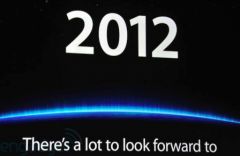While more and more studies take into account the information collected by Apple's connected watch, JP Onnela, associate professor of biostatistics at Harvard University, is concerned about the "inconsistency" of certain results given by the Apple Watch. According to him, the Cupertino watch is imprecise, which makes studies using it obsolete.
He fears that regular updates to the watch's calculation algorithms will affect the way data is collected. In order to address this problem and to be able to deduce whether or not the results have evolved over time, he suggests that Apple put an end to the “black boxes” around these algorithms by making them open source.
By taking different measurements over the same period between 2018 and 2020, Onnela discovered that the results of the Apple Watch were different from those expected, and even more worrying, the number of variations in heart rate,a key data in many studies, was also very far from the mark.
Inaccurate results
The professor nevertheless clarified in an interview for The Verge that these results, if they were not perfect, are more than sufficient to makedaily health monitoringfor people who do not suffer from serious heart problems, but it seemed very difficult to carry out a reliable study using this data.
Onnela also explains that conducting studies using data collected from several different models of connected watches is an even more complicated exercise. The algorithms and calculation systems are specific to each brand and the results should therefore not be interpreted in the same way if they come from an Apple Watch, a Fitbit bracelet or other.
Professor Onnela's study is only based on cardiac results, and more specifically on heart rate variability. Here already, the Apple Watch seems to show limits which do not allow it to be included in serious scientific studies, it is therefore possible thatthe other sensors of the watchsuch as the calculation of the oxygen level in the blood are also imprecise on a research scale.

i-nfo.fr - Official iPhon.fr app
By : Keleops AG





